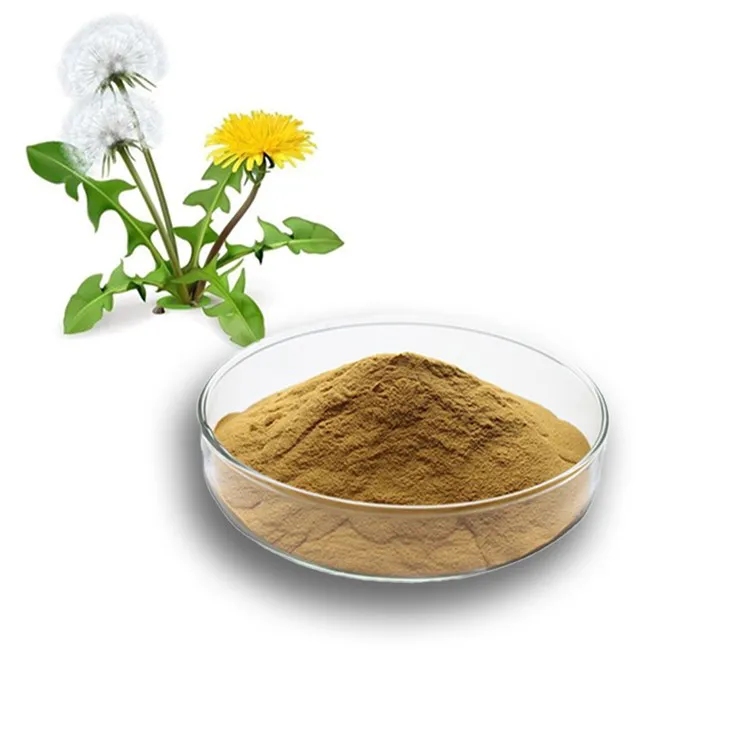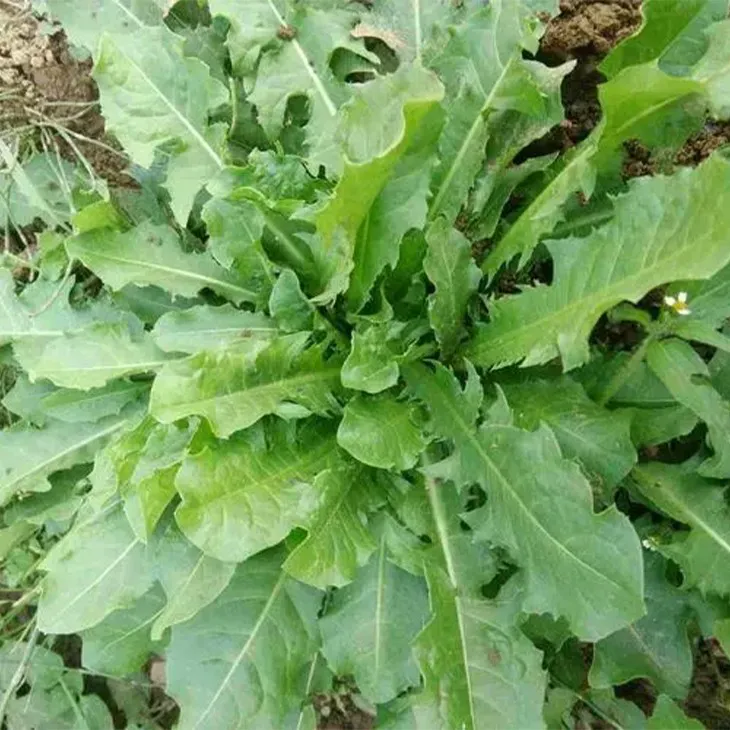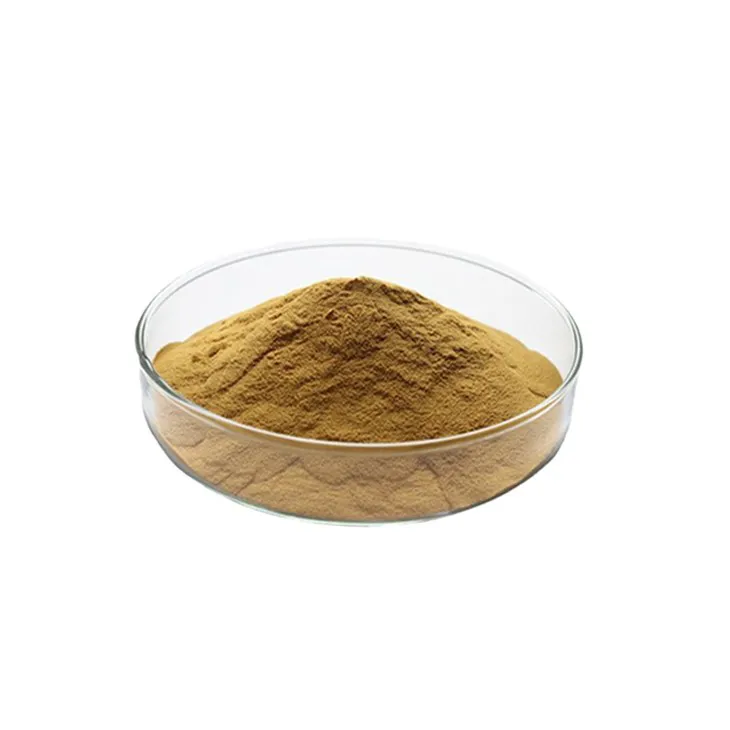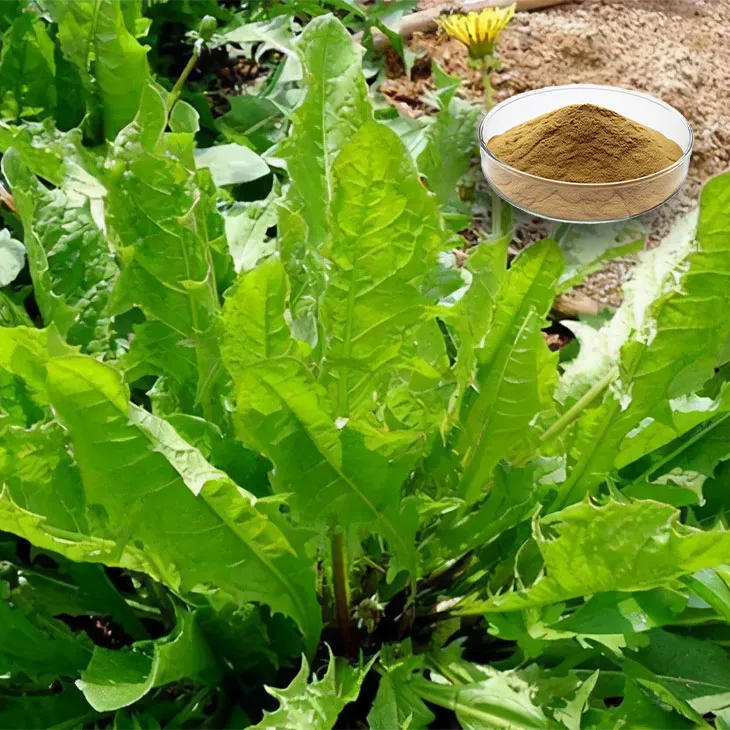- 0086-571-85302990
- sales@greenskybio.com
Dandelion Leaf Extract: China vs. the United States
2024-11-28

1. Introduction
Dandelion (Taraxacum officinale) is a common plant found in many parts of the world. Dandelion Leaf Extract has been attracting increasing attention in both China and the United States. However, due to differences in cultural backgrounds, regulatory systems, and scientific research directions, the two countries have distinct approaches to this natural product.

2. Traditional Use in China
In China, dandelion has a long history of being used in traditional medicine. It is often considered as a "cooling" herb in traditional Chinese medicine theory.
2.1. Health Regimens
It is integrated into comprehensive health regimens. For example, it may be used in herbal teas or decoctions to help with digestion. People believe that dandelion can promote the function of the digestive system by relieving symptoms such as bloating and indigestion. Many traditional Chinese medicine prescriptions containing dandelion are passed down from generation to generation.
2.2. Medicinal Properties
Dandelion is also thought to have certain anti - inflammatory properties. In traditional Chinese medicine, it may be used topically for skin inflammations. Additionally, it is believed to have a diuretic effect, which is beneficial for fluid balance in the body.

3. Research - Based Approach in the United States
In the United States, the approach to Dandelion Leaf Extract is more research - based. Scientists are interested in its chemical composition and potential applications in modern medicine.
3.1. Chemical Composition Analysis
Researchers have been studying the various compounds present in dandelion leaves. These include flavonoids, phenolic acids, and terpenoids. Flavonoids are known for their antioxidant properties, and phenolic acids may have anti - inflammatory effects. Terpenoids may contribute to the potential medicinal benefits of Dandelion Leaf Extract as well. Through advanced analytical techniques, scientists are able to identify and quantify these compounds, which helps in understanding the potential mechanisms of action.
3.2. Potential Medical Applications
There is ongoing research on the potential use of dandelion leaf extract in treating certain diseases. For example, some studies are exploring its role in managing diabetes. It is hypothesized that certain compounds in the extract may help regulate blood sugar levels. Another area of research is its potential anti - cancer properties. Although much more research is needed, initial findings suggest that some components of dandelion leaf extract may have an impact on cancer cell growth and proliferation.

4. Regulatory Climates
The regulatory climates for dandelion leaf extract in China and the United States are different.
4.1. China
In China, traditional Chinese medicine is regulated under a set of traditional medicine regulations. Dandelion, as a traditional medicinal material, is subject to quality control standards. These standards ensure the authenticity, purity, and safety of dandelion products used in traditional medicine. However, as the use of dandelion in modern health products (such as dietary supplements) is increasing, there is also a need for more comprehensive regulatory measures to cover these new forms of products.
4.2. United States
In the United States, dietary supplements containing dandelion leaf extract are regulated by the Food and Drug Administration (FDA). The FDA has certain regulations regarding the labeling, manufacturing, and safety of dietary supplements. However, compared to drugs, the regulatory requirements for dietary supplements are relatively less stringent. This has led to a large number of dandelion - based dietary supplements on the market, with varying levels of quality and scientific evidence supporting their claims.

5. Cultural Attitudes towards Natural Remedies
Cultural attitudes play an important role in the perception and use of dandelion leaf extract in both countries.
5.1. China
In China, there is a long - standing cultural acceptance of natural remedies. Traditional Chinese medicine has been an important part of Chinese culture for thousands of years. People generally have a positive attitude towards using natural herbs like dandelion for health maintenance and treatment of minor ailments. There is also a cultural belief in the holistic approach of traditional Chinese medicine, which emphasizes the balance of the body's internal environment.
5.2. United States
In the United States, the attitude towards natural remedies has been evolving. With the increasing interest in alternative medicine and a growing awareness of the potential side effects of synthetic drugs, more and more Americans are turning to natural remedies. However, the scientific basis is still highly emphasized. Consumers are more likely to look for products that have some scientific research support behind them.
6. Market Trends
The market trends for dandelion leaf extract in China and the United States also show some differences.
6.1. China
In China, the market for dandelion - related products is mainly driven by the demand for traditional Chinese medicine. Herbal pharmacies often sell dried dandelion or dandelion - based herbal preparations. In recent years, with the development of the health product industry, there has been an increase in the production and sales of dandelion - based dietary supplements. However, compared to the United States, the marketing and promotion of these products are more conservative, relying mainly on traditional marketing channels and word - of - mouth.
6.2. United States
In the United States, the market for dandelion leaf extract - based products is more diverse. Dietary supplements are the main form of dandelion - related products on the market. These products are often promoted through various marketing channels, including online advertising, health food stores, and direct - to - consumer marketing. The competition in the market is relatively intense, and companies are constantly looking for ways to differentiate their products, such as by highlighting specific scientific research findings or unique extraction methods.
7. Conclusion
In conclusion, dandelion leaf extract is an interesting subject of study in both China and the United States. While China focuses on its traditional uses and integration into health regimens, the United States takes a more research - based approach. The regulatory climates, cultural attitudes, and market trends in the two countries are also different. Understanding these differences can help in promoting further research, development, and safe use of dandelion leaf extract in both countries and globally.
FAQ:
1. What are the traditional uses of dandelion in China?
In China, dandelion has been traditionally used for various purposes. It is often used in herbal medicine to clear heat and remove toxins. It may also be used to help with digestive problems such as indigestion. Additionally, it is sometimes used in remedies related to urinary tract health.
2. How does the United States research the chemical composition of dandelion leaf extract?
In the United States, researchers use advanced scientific techniques such as chromatography and spectroscopy to analyze the chemical composition of dandelion leaf extract. They isolate and identify different compounds present in the extract, including flavonoids, phenolic acids, and terpenoids. This research is carried out in well - equipped laboratories, often in collaboration with universities and research institutions.
3. What are the differences in regulatory climates for dandelion leaf extract between China and the United States?
In China, the regulatory framework for dandelion leaf extract, as a part of traditional Chinese medicine, is based on a long - established system that combines traditional knowledge and modern scientific evaluation. There are specific regulations regarding its production, quality control, and usage in traditional medicine formulas. In the United States, the regulatory approach is more focused on treating it as a dietary supplement or a potential new drug. Dietary supplements are regulated under different rules compared to drugs, with requirements for safety, labeling, and manufacturing practices.
4. How do cultural attitudes towards natural remedies influence the use of dandelion leaf extract in each country?
In China, there is a long - standing cultural acceptance of natural remedies like dandelion. People are more likely to incorporate it into their daily health maintenance routines based on traditional beliefs. In the United States, while there is an increasing interest in natural remedies, the approach is more cautious. Cultural attitudes are influenced by a strong emphasis on scientific evidence, so the use of dandelion leaf extract may be more likely to follow research - based recommendations.
5. What are the market trends for dandelion leaf extract in China and the United States?
In China, the market for dandelion leaf extract is often integrated with the broader market for traditional Chinese medicine. There is a stable demand for products containing dandelion extract, especially in the form of herbal teas and traditional medicine preparations. In the United States, the market for dandelion leaf extract is growing as part of the trend towards natural and alternative health products. It is increasingly being included in dietary supplements and some natural skincare products.
Related literature
- Dandelion (Taraxacum officinale) Phytochemistry and Its Potential Health Benefits"
- "Traditional Chinese Medicine and Dandelion: Ancient Wisdom and Modern Research"
- "Regulatory Aspects of Herbal Extracts in the United States and China: A Comparative Study"
- ▶ Hesperidin
- ▶ citrus bioflavonoids
- ▶ plant extract
- ▶ lycopene
- ▶ Diosmin
- ▶ Grape seed extract
- ▶ Sea buckthorn Juice Powder
- ▶ Beetroot powder
- ▶ Hops Extract
- ▶ Artichoke Extract
- ▶ Reishi mushroom extract
- ▶ Astaxanthin
- ▶ Green Tea Extract
- ▶ Curcumin Extract
- ▶ Horse Chestnut Extract
- ▶ Other Problems
- ▶ Boswellia Serrata Extract
- ▶ Resveratrol Extract
- ▶ Marigold Extract
- ▶ Grape Leaf Extract
- ▶ blog3
- ▶ blog4
-
The best green tea extract on the market.
2024-11-28
-
Nature's Bounty Okra Extract.
2024-11-28
-
Chinese Oyster Peptide Powder Factories.
2024-11-28
-
The best organic L - carnitine.
2024-11-28
-
Certified organic acerola cherry extract.
2024-11-28
-
Wholesale β - carotene suppliers.
2024-11-28
-
Lotus leaf extract
2024-11-28
-
Apricot Powder
2024-11-28
-
Black Rice Extract
2024-11-28
-
Mango flavored powder
2024-11-28
-
Phyllanthus Emblica Extract
2024-11-28
-
Alisma Extract
2024-11-28
-
Bayberry Extract
2024-11-28
-
Phellodendron Extract
2024-11-28
-
Rosemary extract
2024-11-28
-
Lemon Extract
2024-11-28





















